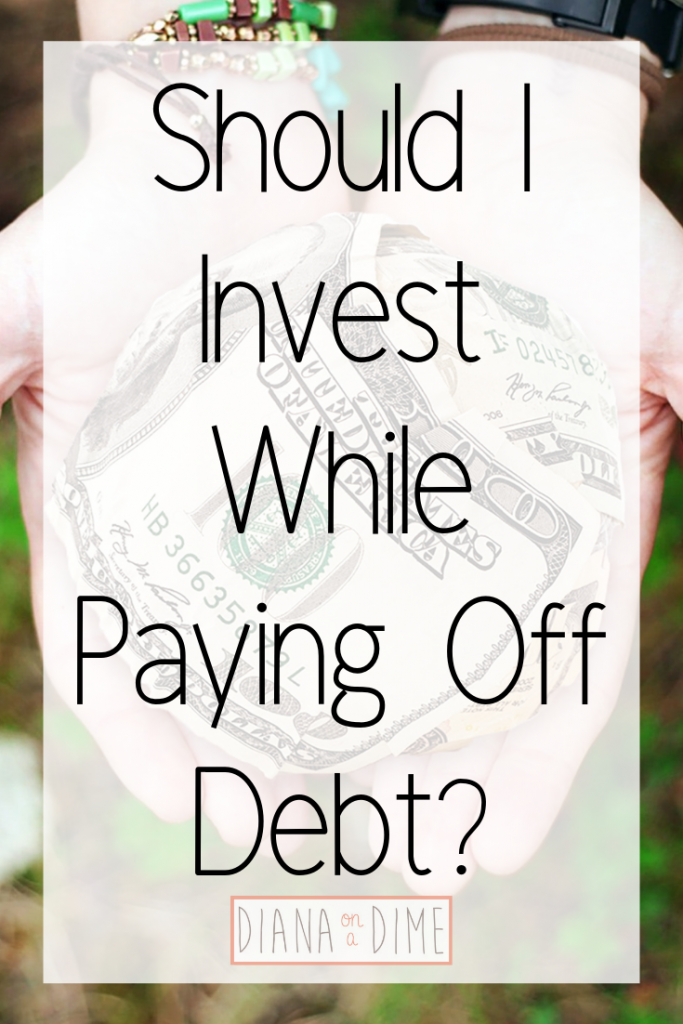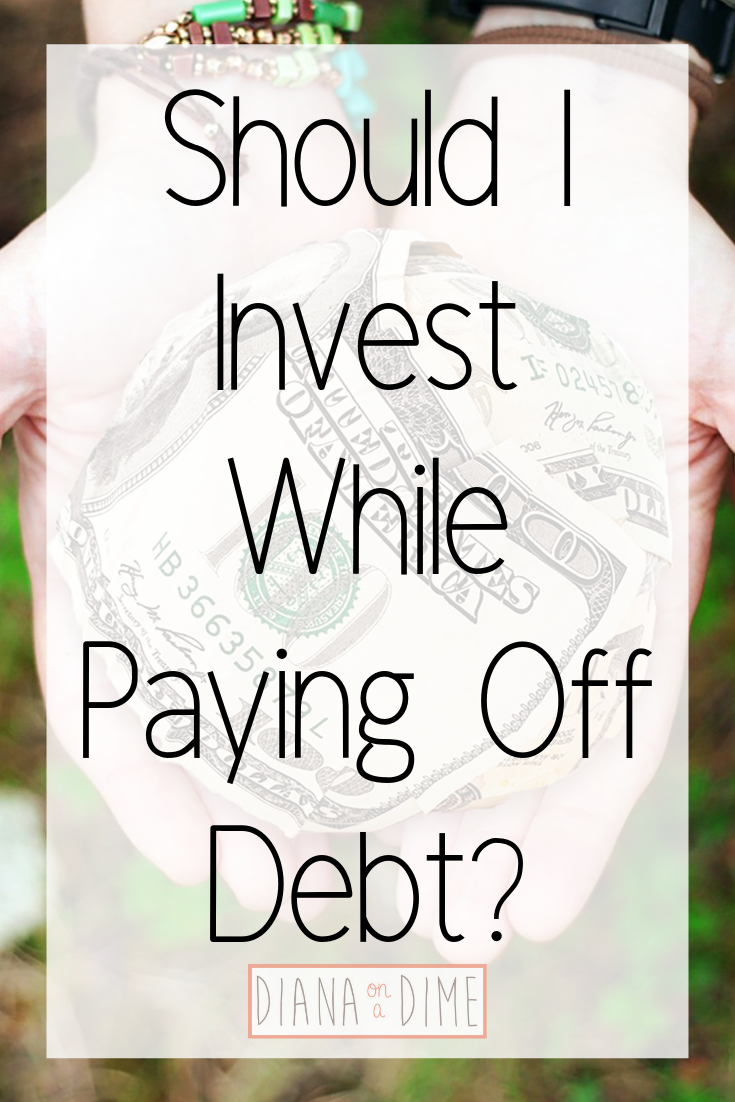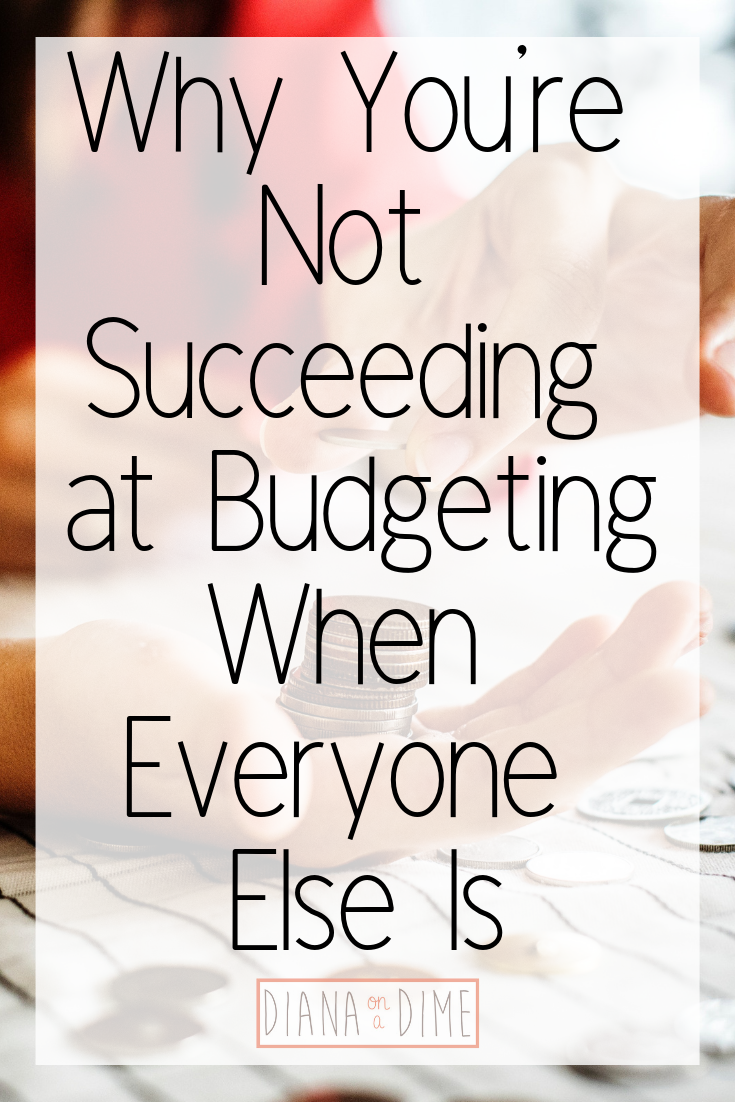Should I Invest While Paying Off Debt?
 This post may contain affiliate links. Check out my Disclosure Policy for more information.
This post may contain affiliate links. Check out my Disclosure Policy for more information.
Whether or not you should invest while paying off debt is a hot topic in personal finance. There are many different ideas surrounding this topic.
The short answer is that it depends on your long term goals and if your employer offers a match.
I have always stood by the idea that if your employer offers a match, contribute up to the match. Most companies this means a small percentage of your check, it’s usually not much.
If your company has some amazing match, then it’s up to you to decide how much to contribute. I wouldn’t leave all the free money on the table though.
This is especially true if you’re a twenty something. Time is absolutely on your side and you have compound interest working wonders for you right now. Take advantage of it!
Once you are contributing up to the match, I would sit tight while you pay off your debt. Once you have made a dent there are some things to consider before upping your retirement contributions.
1. Are you contributing at least up to the match, if your company offers this?
When you’re first starting to budget and getting your finances together, it is very possible that you are living paycheck to paycheck. This happens when we don’t keep track of our finances and we don’t know where our money is going.
If this is you, don’t contribute to your retirement when you can’t get through a month with some wiggle room. It doesn’t make sense.
If you are contributing to retirement, I would recommend stopping your contributions and using this money to build an emergency fund and then pay down your debt.
Once you have a handle on your monthly budget and have some leftover cash, with an emergency fund of one month of expenses, then start contributing up to the match again.
2. Are the interest rates on your debts higher than 5%?
If your interest rates are above 5%, I would sit tight on contributing anything over the match. When you have interest rates higher than 5% on your debt, you’re playing a losing game by contributing to any investments.
You need to keep in mind your net worth. A good rule of thumb I use is asking myself, will this increase my net worth? Yes, investing will increase your net worth usually, but if you’re losing out on high debt interest rates, you’re not making any positive movement.
Once your high interest rate debts are paid off, then you can start to consider some investment options. Mathematically, it doesn’t make sense to do so before your high rate debt is paid off.
3. Do you have a fully funded emergency fund of at least 3 months of expenses?
If you still have debt with rates lower than 5%, then you can consider investing more, if you want. But, do you have an emergency fund with at least 3 months of expenses?
I would suggest first working on beefing up your emergency fund before contributing more to investments.
The reason being that in the event of job loss or other emergency, you’re going to need some money to fall back on. Your investments are not something you want to use in these situations.
Get your emergency fund up to 3 months of expenses and then consider other investment options.
4. What are your long term goals?
Once you have contributed up to your employer’s match, paid down your high interest debt, and have 3 months of expenses set aside in an emergency fund, it’s completely up to you what you want to do!
That’s the great part of personal finance, it’s totally up to you to design your finances to get you the life you want.
Some people hate the idea of debt and will pay off all of their debt ASAP and not even consider investing until it’s gone. Others aren’t as bothered by it and think more mathematically about the returns that they can get in their investments.
The important thing is to consider your long term goals and what feels right for you, your family, and your life. Personal finance is meant to be personal, so make it all about you!
If you hate your debt and would rather pay it off than invest, do it! You’re still making positive moves in regards to your net worth, so it’s a good idea!
Consider the big picture of your finances rather than the small details, will it increase your net worth? Moves that will increase your net worth are good moves!
Ask yourself: If I invest, will this increase my net worth?
This is the question I am constantly asking myself when considering new money moves. Your finances are meant to be personal and you need to consider that when deciding to pay off debt or invest.
I’m a numbers gal through and through. It’s why I used the avalanche method to pay off my debt. So, that’s why I consider my net worth when I make any decisions regarding my finances.
Right now, I am still chipping away at some higher interest debt (6% student loans), I have an emergency fund with 1 month of expenses, and am contributing up to the match with my company.
This is where I will stay until my debts are under 5% interest. Once I cross into paying off my debts with lower rates, I’ll probably consider upping my emergency fund and then upping my investments.
Of course, I will have to see where I am in my life and if my long term goals are the same at that time. Do you invest while paying off debt?




